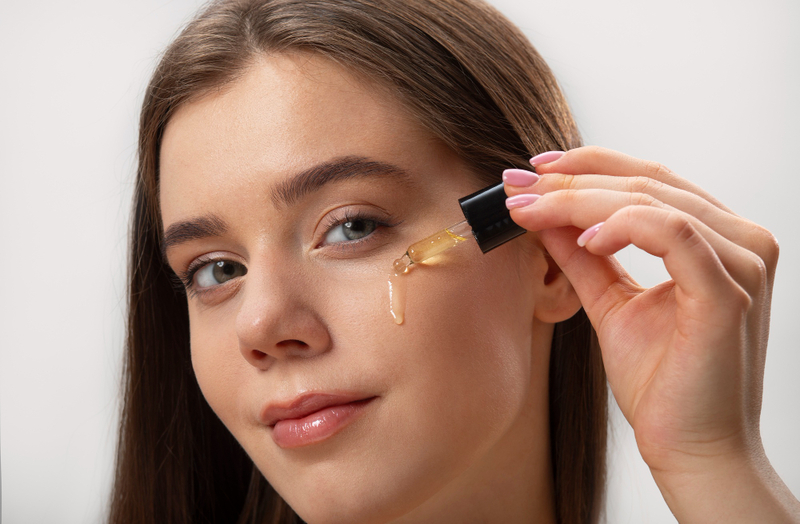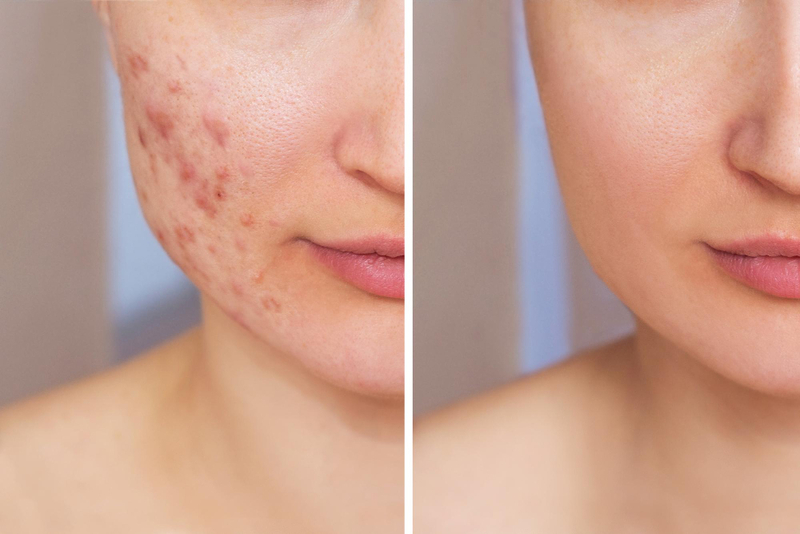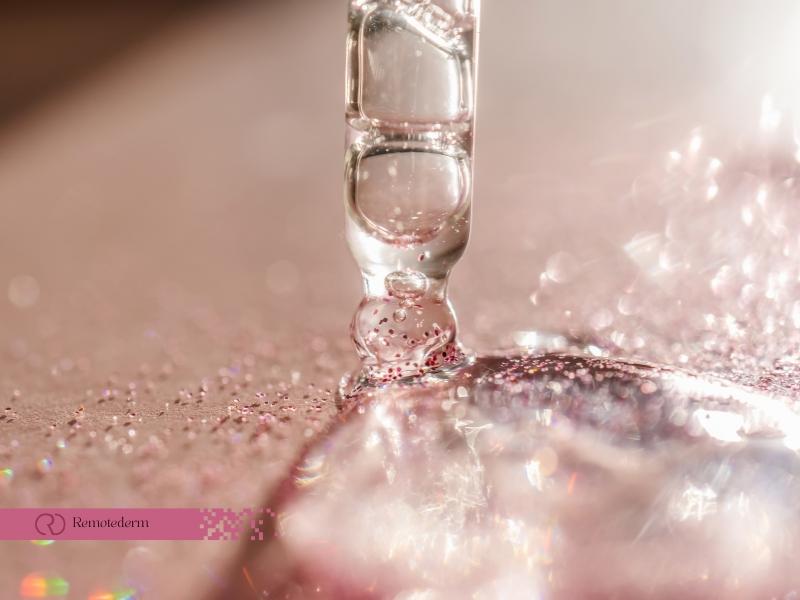In our quest for flawless skin in Canada, retinol has been a buzzword in the realm of beauty and skincare for its transformative effects. However, amidst the celebrated success stories, an unsettling question looms: Can retinol cause acne? In a world where online acne dermatology forums and blogs abound, this concern has become a prevalent subject of discussion.
Understanding Retinol and Its Skin Benefits
Retinol is a powerhouse derivative of Vitamin A, lauded in the skincare community for its multifaceted abilities to rejuvenate and transform the skin’s appearance from the inside out. However, the question “can retinol cause acne?” is often raised, as some individuals experience initial breakouts when starting a retinol regimen. The multidimensional benefits of retinol in skin care are listed below in detail:
Exfoliating Capabilities
Retinol’s prowess in skin exfoliation is unparalleled. Its molecular structure allows it to penetrate deep into the skin, where it hastens the life cycle of skin cells:
- Encourages Rapid Cell Turnover
- Prevents Dead Skin Accumulation

Collagen Production and Anti-Aging Action
Collagen is the scaffold of the skin, providing it with structure and resilience. As we age, natural collagen production diminishes, leading to signs of aging such as wrinkles and a loss of firmness.
- Stimulates Collagen Synthesis: Retinol has been scientifically proven to stimulate collagen production, thus helping to maintain the skin’s elasticity and reduce the appearance of fine lines.
- Anti-aging Effects: With continuous use, retinol can visibly soften the signs of aging, resulting in a more youthful and resilient skin texture over time.
Pigmentation Reduction and Complexion Enhancement
Hyperpigmentation, including sunspots, age spots, and melasma, can mar the skin’s appearance, making it look uneven and older.
- Inhibits Melanin Production
- Skin Tone Balancing
Can Retinol Cause Acne?
The initial phase of incorporating retinol into a skincare routine is often met with great anticipation for transformative results. Given retinol’s reputation for refining the complexion and reversing signs of aging, it seems unlikely that it could be a catalyst for skin complications. Yet, paradoxically, the journey to clear skin can sometimes begin with an unexpected detour: an initial breakout phase associated with retinol use, commonly known as “purging.”
The Science Behind Skin Purging
This phase is characterized by a temporary increase in acne occurrences as the skin undergoes an accelerated rate of renewal. Here’s a closer look at this process:
- Accelerated Cellular Activity: Retinol speeds up cellular activities, pushing dead skin cells to shed rapidly and making way for new growth.
- Microcomedone Formation: As the skin adapts, microcomedones, which are essentially small, uninflamed blemishes, may surface more noticeably.
The transition into regular retinol use is not instantaneous, and the skin requires an adjustment period. During this time, the following changes occur:
- Increased Cell Turnover: Retinol spurs an increase in skin cell renewal, a beneficial long-term process that can initially bring underlying skin issues, such as microcomedones or unseen pimples, to the surface.
- Immune Response: As dead skin cells shed and new cells form, the skin’s immune response may temporarily heighten, which can present as inflammation or acne.
- Adaptation Process: Individual skin types will each have a unique timeline for adapting to retinol. This variability can influence the duration and intensity of the purging period.

Exploring the Potential of Retinol to Trigger Acne
While retinol is not an acne-causing ingredient per se, certain actions related to its use can potentially trigger acne in some individuals:
The Risks of Irritation
Understanding the delicate balance required for effective skincare is crucial, as improper use of retinol can lead to irritation, undermining skin health and exacerbating conditions like acne.
- Overuse: Eagerness for quick results can lead to overuse, which overwhelms the skin, causing irritation that might manifest as acne.
- Incorrect Application: Applying retinol too frequently or in excessive amounts can damage the delicate skin barrier, leaving the skin more susceptible to acne.
Sensitive Skin Types and Retinol Sensitivity
Navigating the use of retinol can be particularly challenging for sensitive skin types, as their heightened vulnerability may lead to an increased risk of irritation and inflammation, potentially triggering acne flare-ups.
- Heightened Reactivity: For those with inherently sensitive skin, the introduction of retinol might heighten its reactive nature, leading to redness, irritation, and, consequently, acne.
- Inflammatory Response: Sensitive skin may respond to retinol with increased inflammatory processes, exacerbating pre-existing conditions like acne.
The Conundrum of Clogged Pores
The strategic application of retinol necessitates an understanding of its effects on skin cell turnover, as mismanagement can contribute to the conundrum of clogged pores, impacting skin clarity and texture.
- Balance in Exfoliation: Retinol promotes exfoliation. However, without balanced skin care, this rapid turnover may lead to dead cells clogging pores rather than being cleared away.
- Importance of Complementary Skincare: A comprehensive skincare routine, including gentle cleansing and non-comedogenic moisturizers, is vital in preventing the clogging of pores, which retinol might initially appear to exacerbate.
Can Retinol Cause Cystic Acne: Separating Fact From Fiction
The query ‘can retinol cause cystic acne’ has troubled many skincare enthusiasts. Cystic acne, the most severe form of acne, is characterized by deeply rooted, painful cysts. While retinol is not a direct cause of such an intense acne form, any complications in the skin’s adaptation process may induce a cystic-like response.
- Deep Exfoliation: Retinol’s penetration may irritate deeper skin layers.
- Inflammation: If retinol leads to excess inflammation, cyst-like acne may appear.
Instead of attempting self-diagnosis, it is advisable to consult a licensed dermatologist—readily accessible through online acne dermatology services—for issues related to retinol-induced acne. Professional guidance can help tailor retinol usage to suit individual skin types, ensuring that the treatment is personalized. Moreover, dermatologists can develop a tailored treatment plan that addresses specific concerns, such as the prospect of potential cystic acne, thus providing a targeted approach for optimal skin health.

Final Thoughts: Balancing the Scales
Retinol has incredible potential to enhance skin health in Canada when used correctly. While it can lead to initial breakouts or purging, the question of “can retinol cause acne?” is often debated. It is not considered a direct cause of acne, particularly cystic acne. However, individual experiences vary, and it’s crucial to proceed with caution, mindful of the advice from experts in online acne dermatology.
In conclusion, retinol requires a strategic approach to harness its benefits while avoiding potential setbacks like acne. By doing so, we can truly unlock the truth behind this transformative ingredient and enjoy healthier, clearer skin.
FAQs
1. Can sensitive skin types use retinol?
Sensitive skin types may use retinol but should proceed cautiously as they may experience heightened reactivity and inflammation.
2. Is retinol suitable for all skin types?
Retinol can be suitable for most skin types, but individual responses vary, and some people — particularly those with sensitive skin — need to use it with care.
3. Can overusing retinol lead to more acne?
Overusing retinol or applying it too frequently can overwhelm and irritate the skin, leading to conditions conducive to acne development.
4. Can retinol lead to long-term skin improvement?
Yes, with consistent and correct use, retinol can contribute to long-term skin improvements, including diminished signs of aging and a clearer complexion.
